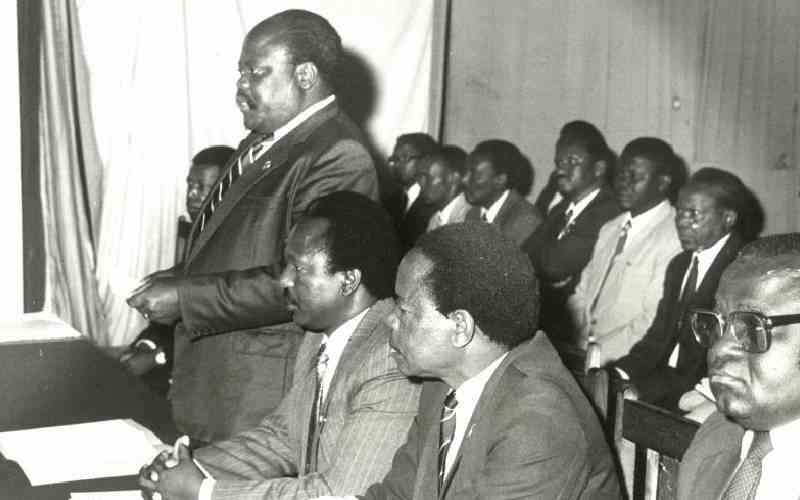
Beads of sweat formed on his furrowed brow. His lips were cracked and his shaky voice barely audible. His hands trembled as he slowly sat down on the reclining chair. He paused to wipe tears from his eyes, then continued sharing the most humbling experience of his life as a politician.
Peter Castro Oloo Aringo, recalled his harrowing airport experience. He froze in his tracks. His ears twitched and his legs trembled as he slowly turned round. At first, he thought he heard wrong. Then he listened keenly to the two cleaners moping the floor in the VIP section of the Jomo Kenyatta International airport. He couldn't believe they were loudly and boldly talking about him in his presence. He feigned a loud cough to try and interrupt their conversation. "God is very unfair" said one of the cleaners in Dholuo: "Why didn't he take this one. It was unfair for such a good man like Robert Ouko to die when an idiot like this one is roaming around". The insensitivity, cruelty and recklessness of the words hit Aringo like a sledge hammer. The two cleaners let out a devilish laughter and contemptuously sauntered away.